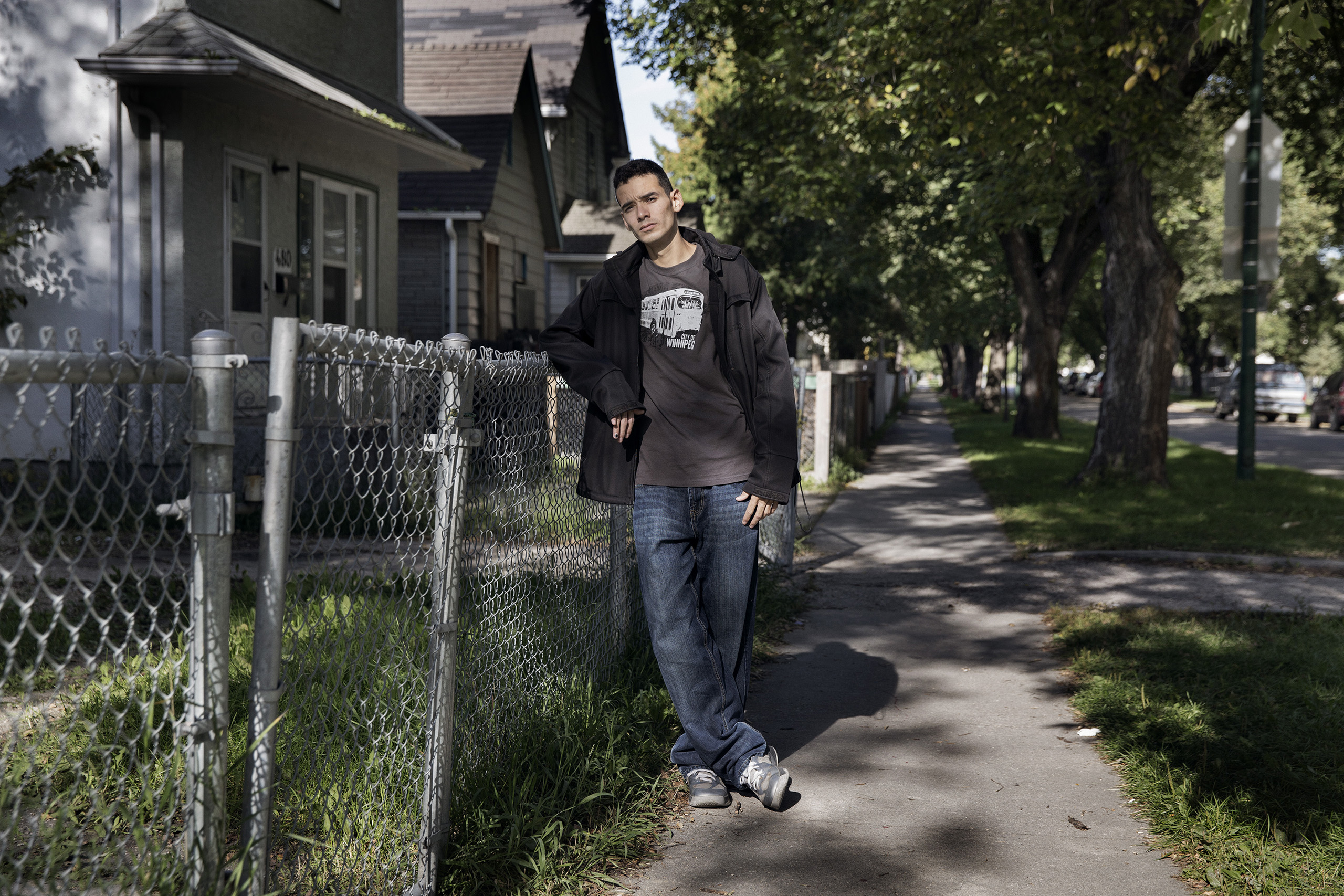It’s a Friday night in Winnipeg. Michael Redhead Champagne has just finished emceeing a preshow for Canada’s annual Indigenous Music Awards. His publicist wants to get him in place to walk the red carpet for the main event. Champagne, a Canadian aboriginal from the Cree tribe, has earned fame on the local stage advocating for the rights of his country’s 1.4 million indigenous people. But just before the show is due to start, the 28-year-old community organizer turned local celebrity is nowhere in sight.
With minutes to spare, Champagne appears, ready to walk the red carpet in jeans, sneakers and a bolo tie. While celebrities, politicians and business leaders chatted over cocktails, Champagne had slipped away to Winnipeg’s North End to lead the same antiviolence rally he’s hosted every week for nearly four years. That night a crowd of 50 locals gathered to protest gang violence that is decimating the city’s indigenous population. The effervescent Champagne has become the face of the movement, blending a respect for aboriginal teachings with an enthusiasm that inspires Winnipeggers from all backgrounds.

Inspiration couldn’t come soon enough for the aboriginal community in Winnipeg, the biggest in Canada. The Canadian prairie city has one of the highest crime rates in the country, and aboriginals are disproportionately victims. But while the problems his community faces are severe, Champagne prefers to talk about solutions. He’s taken the lead at Thunderbird House, a community meeting place that provides a respite from the hard streets of the city’s North End. In Thunderbird House’s large rotunda, he recruits volunteers and teaches about aboriginal values, including an emphasis on mind and body, heart and spirit. “Any community that feels oppressed needs to take ownership over their own struggle,” he says. “More importantly, they need to take ownership over their own solution.”
Champagne knows how to work with politicians, but he’s strongest as a talker and an organizer, able to rally hundreds of people with an impromptu speech. He represents new possibilities for a community that has been portrayed by some white Canadians as noble savages at best and drunken wastrels at worst. “He’s reframed the way we look at things,” says Ko’ona Cochrane, an indigenous organizer in Winnipeg. “He speaks the code of our youth and our traditional ways.”
Champagne’s positivity comes in stark contrast to the existential challenges that face Winnipeg’s indigenous communities. It’s not just crime and poverty—aboriginal people in Canada face a suicide rate more than three times as large as that of the general population.
“What’s the opposite of suicide?” Champagne asks. “Hope. That’s why I need to be positive always. There are literally lives on the line.” Winnipeg may have its problems, but thanks to Champagne, hope is on its way.
- The 100 Most Influential People of 2024
- The Revolution of Yulia Navalnaya
- 6 Compliments That Land Every Time
- Stop Looking for Your Forever Home
- If You're Dating Right Now, You're Brave: Column
- The AI That Could Heal a Divided Internet
- Fallout Is a Brilliant Model for the Future of Video Game Adaptations
- Want Weekly Recs on What to Watch, Read, and More? Sign Up for Worth Your Time